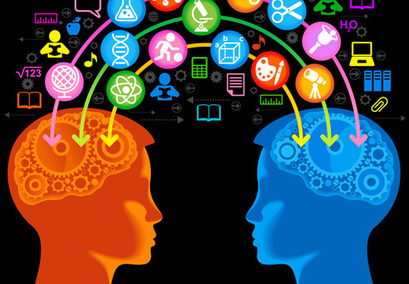Get Started for FREE
Sign up with Facebook Sign up with X
I don't have a Facebook or a X account
 Your new post is loading... Your new post is loading...
 Your new post is loading... Your new post is loading...

Christopher Scorey's curator insight,
March 19, 2016 10:53 PM
Education is key in today's society. I love to learn, to expand my knowledge, but sometimes I find it challenging to absorb information as some tasks educate me and others just drive me crazy. This picture expresses my thoughts on learning because some types of tasks hinder and others further learning, it all differs with each person. For me learning through action and visuals help me absorb more information.
Karina Calvo's curator insight,
March 23, 2016 4:07 PM
Operational excellence requires cultivating an expectation for continuous improvement in all employees. 
Terry Yelmene's curator insight,
September 9, 2016 11:51 AM
It's your people... your entire venture, the planning, that value propositions, the market-fit, the processes, the programs ROI, the valuation... in the end, it all comes down to your people, doesn't it?
|

The Learning Factor's curator insight,
March 16, 2017 5:57 PM
These ridiculously simple brain hacks can subtly encourage people to decide in your favor.
Vanessa Ong Li Wen's curator insight,
March 19, 2017 12:14 PM
I agree that at times, we need to angle our argument that targets one’s emotional capacity so as to strengthen the message we are trying to convey and be more persuasive. Although logic is an important factor in allowing people to understand what you are trying to say, simply informing them and convincing them are two separate matters. In essence, using positive emotions to encourage people to believe in you is the right way to go. Once they feel that they have established the connection with you, they will naturally be more inclined to believe whatever it is you are trying to say.
|













